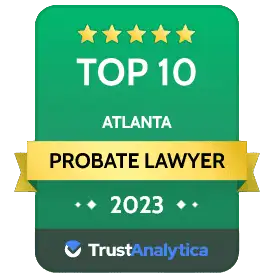Asset Transfer: Your Atlanta Probate Attorney | Siedentopf Law
What is the Probate Process in Georgia?
For Georgia Residents
How Does Georgia's Probate Process Work?
Document Compilation
The probate process documents that you need include the will, death certificate, life insurance paperwork and property deeds. Any paperwork for additional financial or estate planning items like retirement accounts, business ownerships or trusts should also be gathered.
Filing the Petition for Georgia Probate
For most people, this is a two-part step that starts with a visit to an attorney and ends with signing and filing the petition for probate. Along with the petition for probate, all legal heirs have to be notified of the proceeding. All known legal documents should be brought for initial reference.
Creditor Notices
A notice must be published in the county newspaper designated for legal notices so that any creditors of the estate have opportunity to submit their claims.
Asset Collection
It is the estate administrator's duty to open an estate bank account and round up all assets of the estate, from the smallest of knickknacks to houses and more.
Tax Filing
It is the estate administrator's duty to file the decedent's final tax return. They must also include any outstanding or extended tax returns as applicable.
Distributing the Estate
The estate administrator must pay all creditor claims first. Once these are settled, the remainder of the estate can be divided between heirs. If the estate administrator is being paid for handling the estate, as many have can be, this is when the statutory fees are calculated to pay them.
Closing the Estate
This step is often overlooked, but as long as the estate remains legally open, the estate administrator is liable for the estate. Officially closing the estate helps to limit that liability and start the statute of limitations running for any claims arising from the handling of the estate.

Probate is a Process
Why Should I Start Planning Now?
Estate Planning
Get Our Free Estate Planning Guide Written for Georgia Residents.
Choosing a Will or Trust
Use Our Free Comparison Guide to Find Out Which is Right for You.






